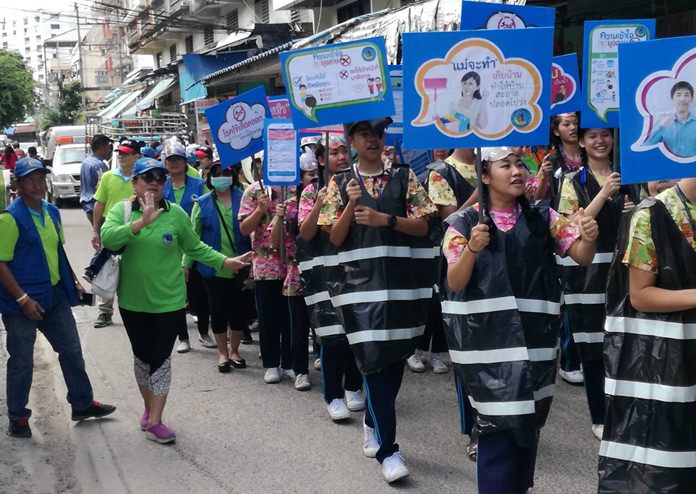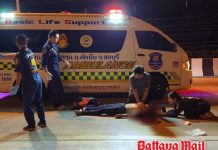
A central Pattaya neighborhood did its part to commemorate ASEAN Dengue Day by leading residents and volunteers on a march to raise awareness and prevent spread of the potentially deadly virus.
City Councilman Sinchai Wattanasartsathorn and Jirawat Plukjai, president of the Chumsai Community, led the parade of Surveillance and Rapid Response Team volunteers and residents on the march down Central Road, along Soi Buakhao and through its sidestreets to raise the alert about dengue fever in Pattaya, which has been declared a “red zone” for the disease.
Volunteers handed out abate sand while SRRT members went around spraying pesticide. They also dropped abate in water sources and drains while public health workers distributed flyers about the dengue and how to prevent its spread.
The campaign was one of hundreds organized across the country as part of the annual ASEAN Dengue Day, which this year has the theme of “ASEAN United Against Dengue”. Similar activities were organized at the national level in 10 of the 11 Association of Southeast Asian Nations countries June 15.
Campaigners in Pattaya urged residents, tourists and vendors to keep their property tidy and dry to prevent disease-carrying mosquitos from breeding. People also were advised to wear long sleeves at night or when around trees and gardens. Repellant use also was advocated.
Dengue is a mosquito-borne viral infection with flu-like illness that can potentially develop into severe complications characterized by respiratory distress, severe bleeding and organ impairment. It is one of the fastest growing emerging infectious diseases in the world that affects infants, children and adults. Dengue does not only have public health consequences but also has significant socio-economic impacts. It is globally estimated that there are 390 million dengue infections per year, of which 96 million have clinical symptoms.
 |
 |





